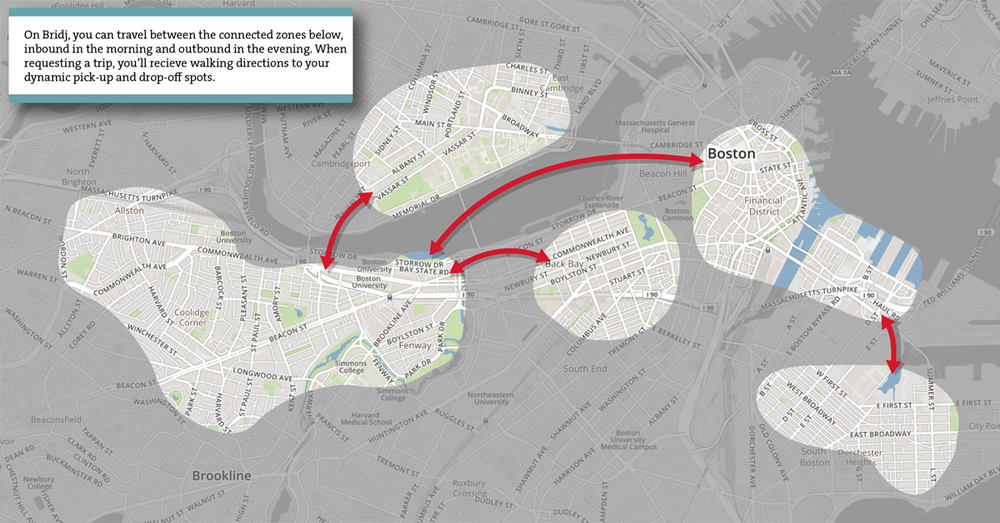On Monday, January 5, pop-up bus service Bridj launched a new mobile app as part of its beta testing. The sleek new platform is available for both iOS and Android users to download for free.
Bridj uses big data to transport commuters via bus to their respective locations but in nontraditional fashion. Rather than deliver people along fixed routes like the MBTA does, Bridj takes into account where users live, work and often travel to offer more dextrous and efficient course of direction.
The app works simply. A user need only enter their destination and the time they’d like to depart. They’re then able to reserve a seat and voila, the user is given directions to where a high-tech Bridj bus will pick them up and allow them to track it along the way. Trips can be booked minutes or even days in advance.
Each bus will be equipped with free WiFi, premium seating, automatic doors, and will be powered by Biodiesel.
During its beta, Bridj will cost $3 per ride though that number is expected to rise slightly when the service is fully operational; however, costs will still be cheaper than a taxi or driving oneself.
Bridj also announced that they’ll be running evening service from 4 p.m. to 7 p.m. along with its usual morning service from 7 a.m. to 10 a.m.

As part of its beta, Bridj is offering four general routes to and from high density work and residential areas. People can travel to and from Allston-Brighton and Kendall Square, Allston-Brighton and the Financial District/Seaport, Allston-Brighton and Back Bay, and the Financial District/Seaport and South Boston.
Back in August the City of Boston granted Bridj a jitney license and the Boston City Council threw its support behind the company. Bridj does not meet the exact criteria for a jitney license though only because no such transportation such as Bridj as existed prior. The City of Boston, therefore, saw it fit to allow Bridj to operate under it.
In Cambridge, Bridj is currently running a six-month pilot program. The City of Cambridge was not quite as taken with Bridj as Boston was, contending that Bridj would interfere with MBTA and taxi service. Officials eventually came around, though, and the pilot program gives Bridj the opportunity to show that each industry can work amongst each other to better service the public.

